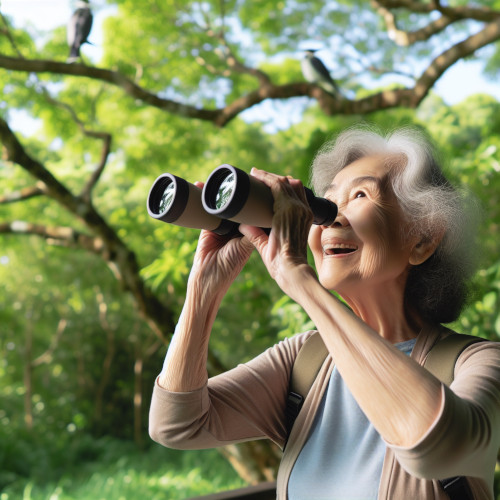
Which Senior Safety Tips Are Essential for Every Home?
Seniors can stay safe at home by preventing falls, ensuring fire and electrical safety, and addressing bathroom hazards. Key steps include...
Posted by

As we age, staying active becomes more important than ever to maintain physical health, mental well-being, and social connections. However, choosing the right activities that are both enjoyable and safe can be challenging, especially for seniors who may have specific health concerns or mobility limitations. Finding outdoor activities that match seniors' fitness levels, abilities, and personal interests can make a significant difference in their quality of life. In this guide, we explore some of the safest outdoor activities for seniors that encourage healthy aging and provide benefits across the areas of elder care, senior care, and senior living.
Walking is one of the most accessible and beneficial activities for seniors of all fitness levels. This low-impact exercise can be done almost anywhere—around the neighborhood, in parks, on trails, or even on beaches. Walking improves cardiovascular health, helps manage weight, boosts mood, and strengthens muscles and bones. For seniors with balance concerns, walking can be done with the aid of a cane or walker for extra stability.
Walking is a wonderful way to get seniors moving with minimal stress on joints, especially for those receiving elder care at home. Even short walks can improve flexibility, reduce stiffness, and support heart health. If done regularly, it's also a simple way for caregivers and seniors to connect and enjoy the outdoors together.
Gardening provides both mental and physical benefits, offering a calming way to connect with nature while getting gentle exercise. Whether seniors plant vegetables, herbs, or flowers, gardening activities such as planting, watering, and weeding can enhance hand strength, flexibility, and endurance. Gardening has also been shown to reduce stress and improve mood, making it a therapeutic activity for those experiencing loneliness or depression.
For seniors receiving care in a home or community setting, gardening can be a fantastic activity to add to their daily or weekly routine. Not only does it provide light physical activity, but it also promotes a sense of accomplishment and connection with the environment. Gardening is an ideal hobby to maintain at a low intensity and can easily be adapted to fit individual needs.
Birdwatching is a peaceful and educational activity that allows seniors to connect with nature without the need for intense physical exertion. Equipped with a pair of binoculars and a bird identification guide, seniors can enjoy this activity in backyards, parks, or bird reserves. Birdwatching offers cognitive stimulation as seniors learn about different bird species and their behaviors, keeping the mind sharp and engaged.
For seniors in senior living communities, birdwatching can be organized as a group activity, providing both companionship and a low-impact way to appreciate nature. Even for seniors with limited mobility, birdwatching can be done from a stationary position or indoors if bird feeders are set up outside windows, allowing everyone to participate regardless of ability.

Both yoga and tai chi are ideal for seniors as they are gentle exercises that focus on flexibility, balance, and relaxation. Practicing these activities outdoors adds another layer of benefit, as natural surroundings can help calm the mind and boost mood. Many communities offer outdoor yoga or tai chi classes specifically for seniors, often led by instructors who are trained to adapt exercises for different skill levels and physical abilities.
Yoga and tai chi can improve balance, which is crucial for fall prevention in seniors. They also enhance flexibility and core strength, supporting physical independence. These activities are especially valuable for seniors receiving elder care at home or those in senior living communities, as they promote body awareness, stress relief, and overall well-being.
Socialization is essential for seniors, and spending time with friends and family outdoors can help reduce feelings of isolation and depression. Picnics and casual gatherings in parks or gardens are enjoyable, low-energy ways for seniors to engage with others in a relaxed setting. These social events can include light activities such as card games, storytelling, or listening to music, allowing seniors to bond with loved ones while benefiting from the fresh air and sunshine.
Social engagement is an integral part of senior living. Organized group outings or outdoor gatherings can be a great way to help seniors build and maintain friendships, experience a sense of community, and reduce loneliness. For seniors in residential care settings, organized outdoor activities offer a change of scenery and a welcome opportunity for interaction.
Finding the right outdoor activities for seniors can make a substantial difference in their physical and mental health, contributing to a more vibrant and fulfilling lifestyle. Walking, gardening, birdwatching, yoga or tai chi, and social gatherings are five senior-friendly options that promote safety, enjoyment, and well-being. Each of these activities can be tailored to individual fitness levels and adapted for different care needs, from elder care at home to senior living communities. By embracing outdoor activities, seniors can stay engaged with life, nurture friendships, and enjoy the mental and physical benefits of being active in nature.

Seniors can stay safe at home by preventing falls, ensuring fire and electrical safety, and addressing bathroom hazards. Key steps include...
Posted by

Choosing a nursing home is a critical decision that requires careful consideration of various factors, including safety, staffing, and...
Posted by

Recognizing elder abuse and acting swiftly are critical steps toward ensuring the safety and well-being of our aging loved ones. Regular...
Posted by